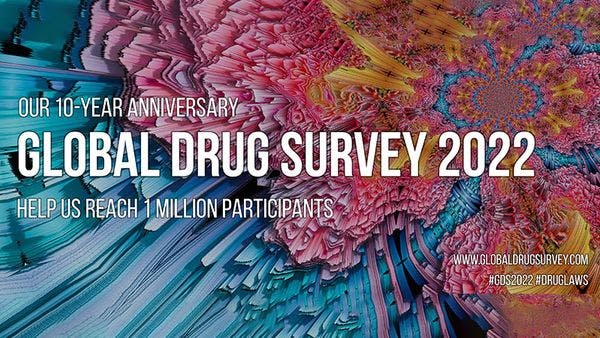L’Enquête mondiale de 2022 sur les drogues a été lancée – Les politiques des drogues et la loi : comprendre votre point de vue et vos expériences
La 10ème édition de l’Enquête comprend des questions portant sur les points de vue sur la réforme des politiques des drogues. Pour en savoir plus, en anglais, veuillez lire les informations ci-dessous.
Professor Judith Aldridge, University of Manchester And Dr Rebecca Askew, Manchester Metropolitan University
Drug policy is firmly on the global political agenda. Over the past decade we have seen changes to cannabis policy worldwide, an increase in drug related deaths connected to the opioid crisis, the introduction of safe consumption sites in several European countries, as well as Canada and Australia, and drug checking at festivals in the UK and Australia. Public opinion on drug policy reform is often sought to help understand support for change, as well as key concerns that people have about liberalising drug policy.
This year, Global Drug Survey wants to know about your experiences and opinions connected to drug policy and the law. How have drug laws impacted you? What do you think about policy approaches and their potential impact for individuals and communities?
This year GDS has teamed up with Professor Judith Aldridge and Dr Rebecca Askew, who are Manchester based criminologists working in the field of drug use and drug policy. While there are many public opinion polls that have attempted to gauge people’s views on drug policy and reform, there has been something of a stumbling block to doing this well. Many different things are understood by the words decriminalisation, legalisation and prohibition, so just asking survey respondents to say if they agree or disagree with these approaches doesn’t really help us to fully understand their views.
GDS2022 uses an entirely new approach, building on some of the insights of Dr Rebecca Askew’s UK-based Drug Policy Voices project. While opinions on drug policy are complex and sometimes contradictory, we’ve learned that getting to the bottom of the underlying beliefs and value orientations that drive people’s preferred policy approaches is key. This is important to communicate to policy makers, activists and drug policy reform organisations across the globe as their work informs policy.
This year, we’ll ask GDS respondents to tell us their opinions on the likely impact of three very different hypothetical approaches that governments could take to dealing with people who use and sell drugs: the impact on crime and public disorder, on drug usage rates, on health, on personal freedoms, on vulnerable people, on the economy and on trust in government. We also ask respondents to tell us their opinions on age restrictions, advertising, and personal freedoms to ‘grow your own.’ We know that some people avidly support changes to drug policy and others are more cautious; it is therefore important to understand the range of views in order to help policy makers, activists and others ensure that drug laws are both appropriate and just.
We also want to know not just what people’s drug policy preferences are, but how existing drug policies have impacted them. We know that many people who take drugs will have had negative experiences that arise from the drug policies in their countries, in connection to the police, staff in clubs and festivals, or in job or educational settings, and even when buying drugs from dealers. GDS2022 will help us to understand the consequences that drug laws and policies have for people who use drugs. By integrating public opinion and drug-related experiences, GDS will produce critically important knowledge to inform evolving global policy.
Go on… hit the link, take the survey.
It’s anonymous, confidential and encrypted. Your experiences will help inform others and influence change.
Stay safe, Professor Adam Winstock, Dr Monica Barratt, Dr Emma Davies & Associate Professor Jason Ferris, on behalf of all at GDS
Sujets
Régions
Profils associés
- Global Drug Survey
